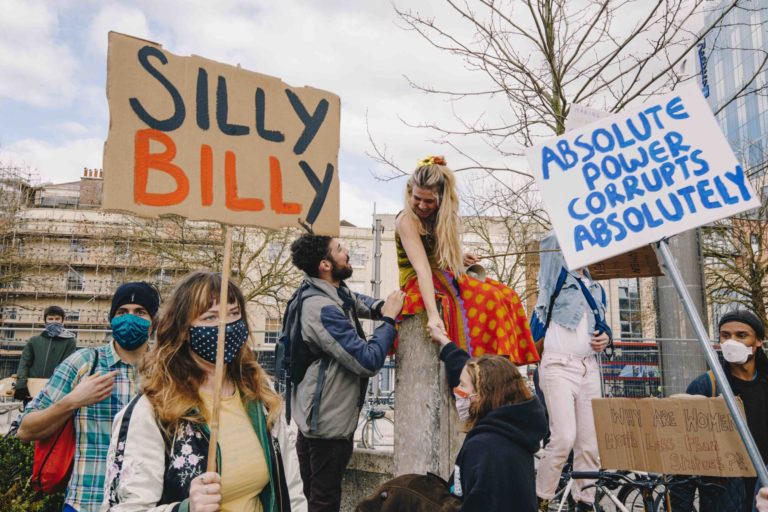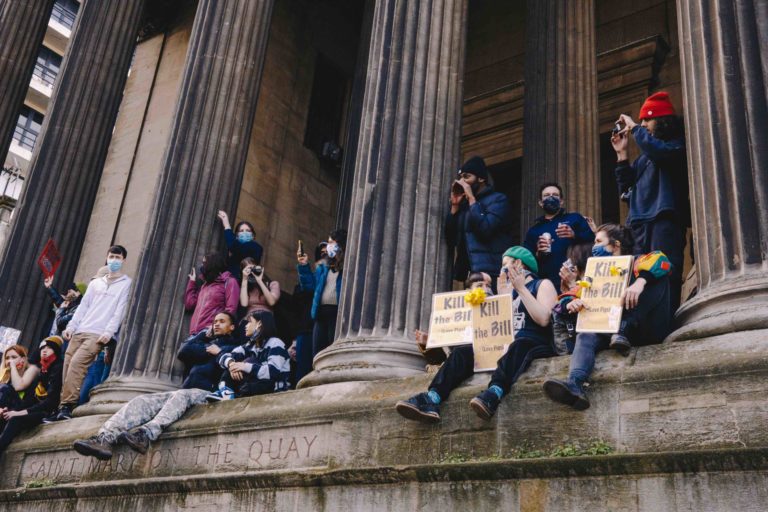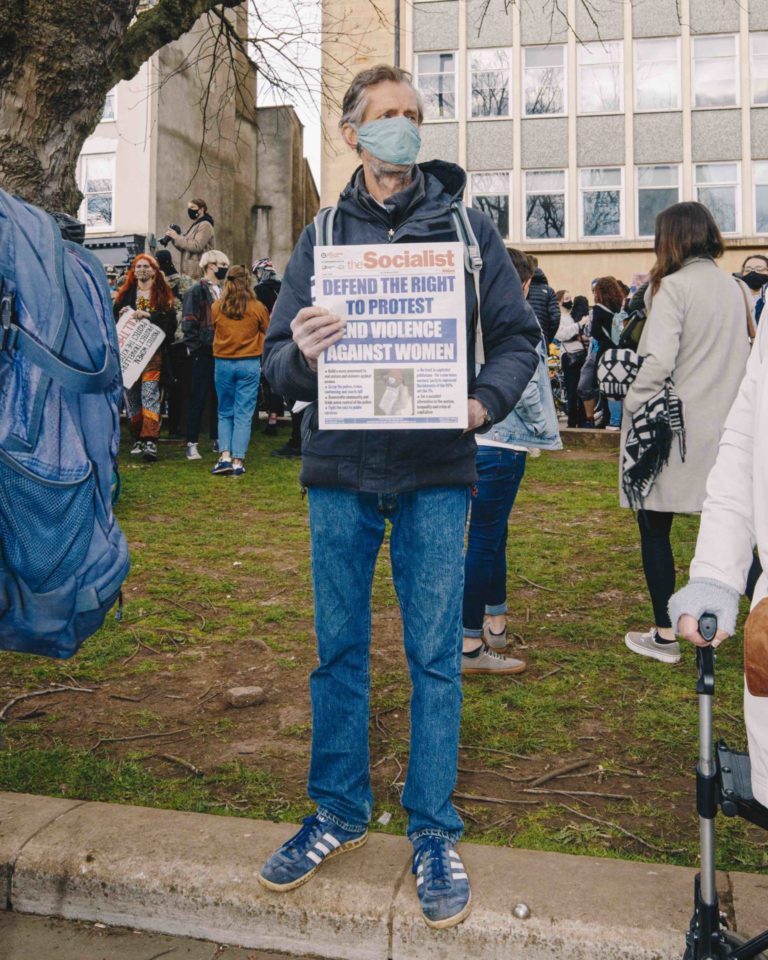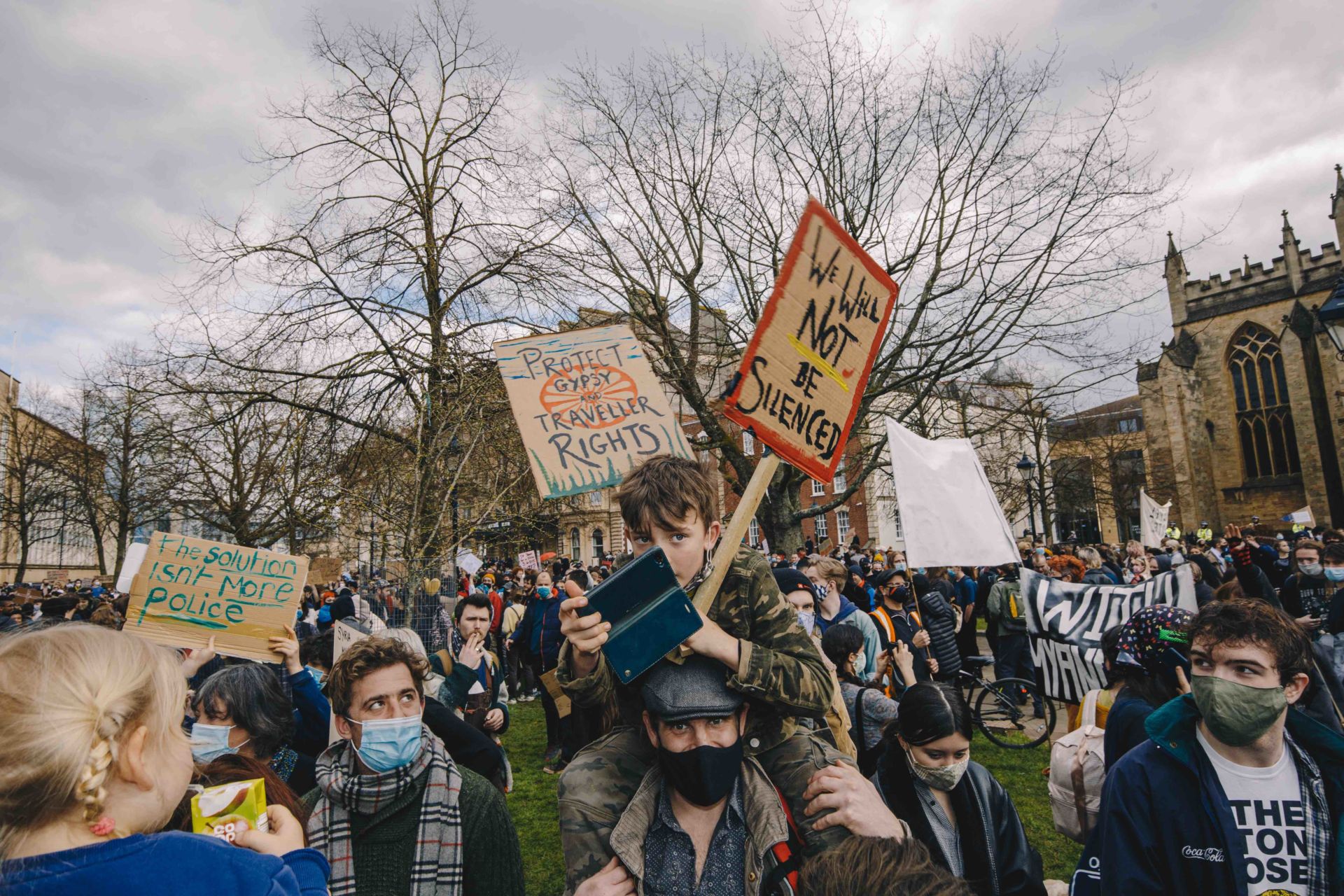Few people condone violence in protests, particularly violence that results in punctured lungs or broken bones, as the Kill the Bill Bristol protest has.
Of course, the protests in Bristol against the proposed Police, Crime, Sentencing and Courts Bill were not intended to be violent, and by and large were not.

Described by Bristol Post as a festival-like gathering of like-minded people, the demonstration remained peaceful until early evening, when a sit-down protest outside Bridewell station became confrontational.
This soon escalated with a number of demonstrators scaling the station, graffiting on the walls on the station, and throwing fireworks. Rocks, too, were thrown at the police, despite the protests of other demonstrators, reported Bristol24/7.
According to the BBC, 21 officers were injured, with one officer treated at a hospital with a punctured lung and broken ribs, and another with a fractured arm. Twelve police vehicles were also damaged, with two set on fire — one of which had police officers inside it. There have since been eight arrests.

Now, a demonstration against legislation that will allow the police to impose further conditions on protests may be used to justify it.
But considering the concerns about the lasting implications of the Bill on civil liberties, we should not maintain our focus on shaming those who have resorted to violence to express their anger and frustration.
For while it may be true that their actions were, as Bristol Mayor Marvin Rees condemns, reflective of their “political illiteracy,” and more to do with “self-gratification,” recent UK events do suggest that mass-shaming via the media has not been particularly fruitful at enacting behaviour change either. Particularly considering that the majority of those quoted by news outlets are held in contempt by many demonstrating, let alone those willing to resort to violence.
Related Articles: Testimonial: I Joined Native American Tribes Pipeline Protests | Anti-Vac Protesters: The Roots of a Crazyness
Instead, is it possible for communities and sub-communities to draw boundaries that rule out destructive behaviour as a way of enacting change or being heard? Or to question why certain individuals are so angry and resentful? As one witness of the protest asks of The Guardian, is there a bigger picture to see?
Also worth asking: Can the government truly expect to pass legislation that will have such impact on our rights without pushback? Demonstrations being heavily policed right now is a result of lockdown measures, caution remaining a priority. So, is there no way to delay such proposals?

This bill, concerning not only because of its proposed measures regarding free expression and right to protests, has also made headlines for its lack of measures to violence against women and girls. Not only does it come at a time when the vast majority are experiencing more restrictions placed on their civil liberties than ever before, but it’s also implemented by a government that has seen record low rape convictions and an increase in rape cases.
The images from Sarah Everad’s vigil at Clapham Common will have only fueled people’s anger and worry too, particularly when voices such as Kate Allen, Director of Amnesty International UK, are expressing apprehensions that the bill is liable to pave the way for over-policing.
When it comes to the issue of demonstrations during a pandemic, there is clearly an interpretation of what the real dangers to people’s lives are. But as Allen says,
We mustn’t let restrictions on our basic right to protest remain a lingering symptom of this difficult time.
We cannot ignore the realities of the pandemic, nor turn a blind eye to destructive behaviour — but we should not allow it to hijack important public conversations. Rather, contemplating how we can skillfully push back against such legislation under these conditions must take priority.
Editor’s Note: The opinions expressed here by Impakter.com columnists are their own, not those of Impakter.com. — In the Featured Photo: Protestors at the Kill the Bill Protest in Bristol, UK, March 21, 2021. Featured Photo Credit: Joshua Collins.









